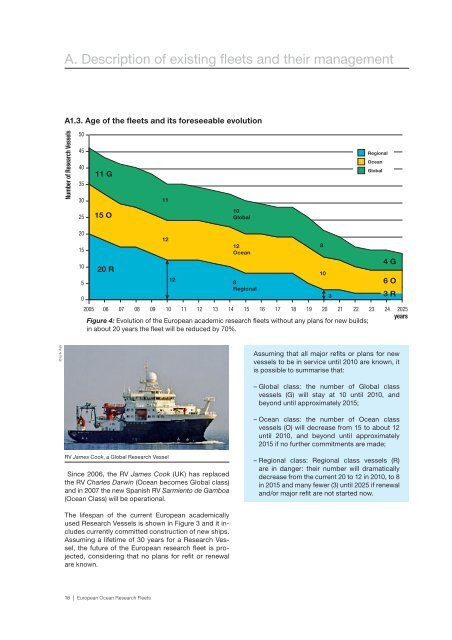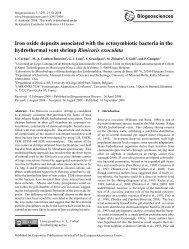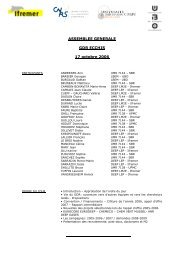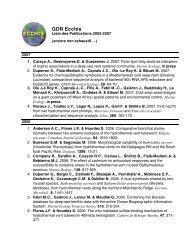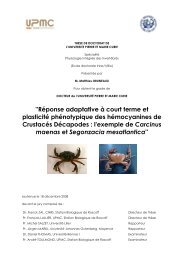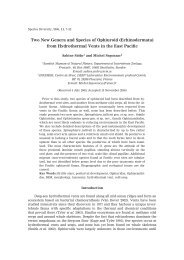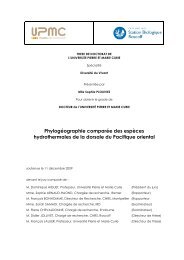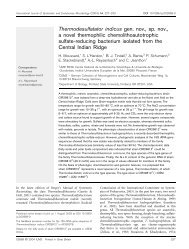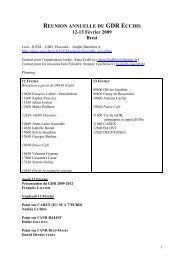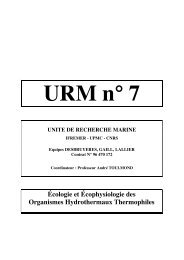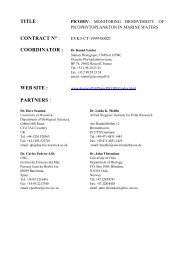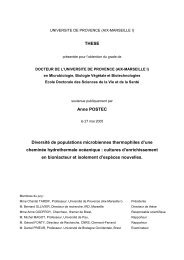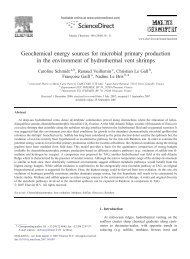European Ocean Research Fleets - uefiscdi
European Ocean Research Fleets - uefiscdi
European Ocean Research Fleets - uefiscdi
You also want an ePaper? Increase the reach of your titles
YUMPU automatically turns print PDFs into web optimized ePapers that Google loves.
A. Description of existing fleets and their management<br />
A1.3. Age of the fleets and its foreseeable evolution<br />
Number of <strong>Research</strong> Vessels<br />
50<br />
45<br />
40<br />
35<br />
30<br />
11 G<br />
11<br />
Regional<br />
<strong>Ocean</strong><br />
Global<br />
25<br />
15 O<br />
10<br />
Global<br />
20<br />
12<br />
15<br />
12<br />
8<br />
<strong>Ocean</strong><br />
10<br />
20 R<br />
4 G<br />
10<br />
5<br />
12<br />
8<br />
6 O<br />
Regional<br />
0<br />
3<br />
3 R<br />
2005 06 07 08 09 10 11 12 13 14 15 16 17 18 19 20 21 22 23 24 2025<br />
Figure 4: Evolution of the <strong>European</strong> academic research fleets without any plans for new builds;<br />
years<br />
in about 20 years the fleet will be reduced by 70%.<br />
© Erik Ask<br />
Assuming that all major refits or plans for new<br />
vessels to be in service until 2010 are known, it<br />
is possible to summarise that:<br />
– Global class: the number of Global class<br />
vessels (G) will stay at 10 until 2010, and<br />
beyond until approximately 2015;<br />
– <strong>Ocean</strong> class: the number of <strong>Ocean</strong> class<br />
vessels (O) will decrease from 15 to about 12<br />
until 2010, and beyond until approximately<br />
2015 if no further commitments are made;<br />
RV James Cook, a Global <strong>Research</strong> Vessel<br />
Since 2006, the RV James Cook (UK) has replaced<br />
the RV Charles Darwin (<strong>Ocean</strong> becomes Global class)<br />
and in 2007 the new Spanish RV Sarmiento de Gamboa<br />
(<strong>Ocean</strong> Class) will be operational.<br />
– Regional class: Regional class vessels (R)<br />
are in danger: their number will dramatically<br />
decrease from the current 20 to 12 in 2010, to 8<br />
in 2015 and many fewer (3) until 2025 if renewal<br />
and/or major refit are not started now.<br />
The lifespan of the current <strong>European</strong> academically<br />
used <strong>Research</strong> Vessels is shown in Figure 3 and it includes<br />
currently committed construction of new ships.<br />
Assuming a lifetime of 30 years for a <strong>Research</strong> Vessel,<br />
the future of the <strong>European</strong> research fleet is projected,<br />
considering that no plans for refi t or renewal<br />
are known.<br />
18 | <strong>European</strong> <strong>Ocean</strong> <strong>Research</strong> <strong>Fleets</strong>


